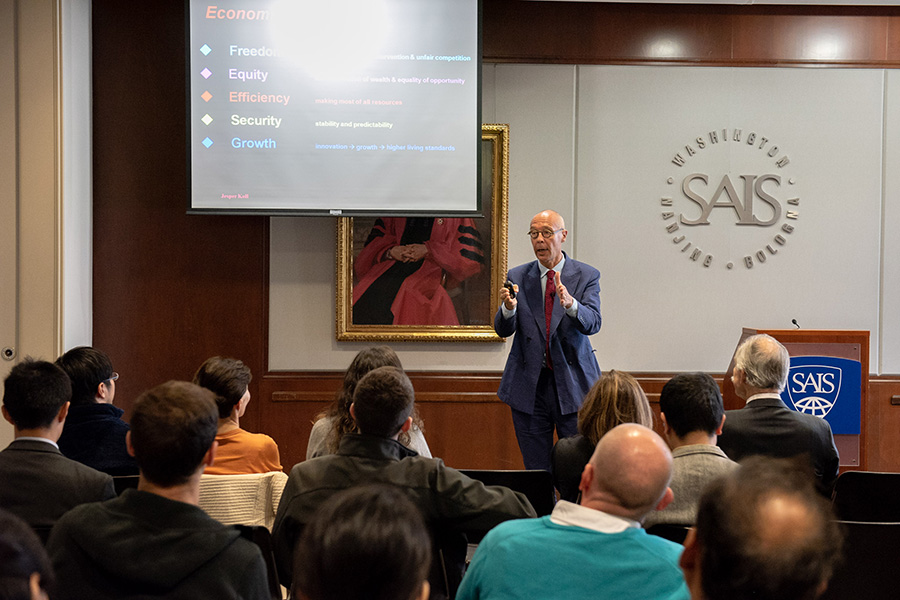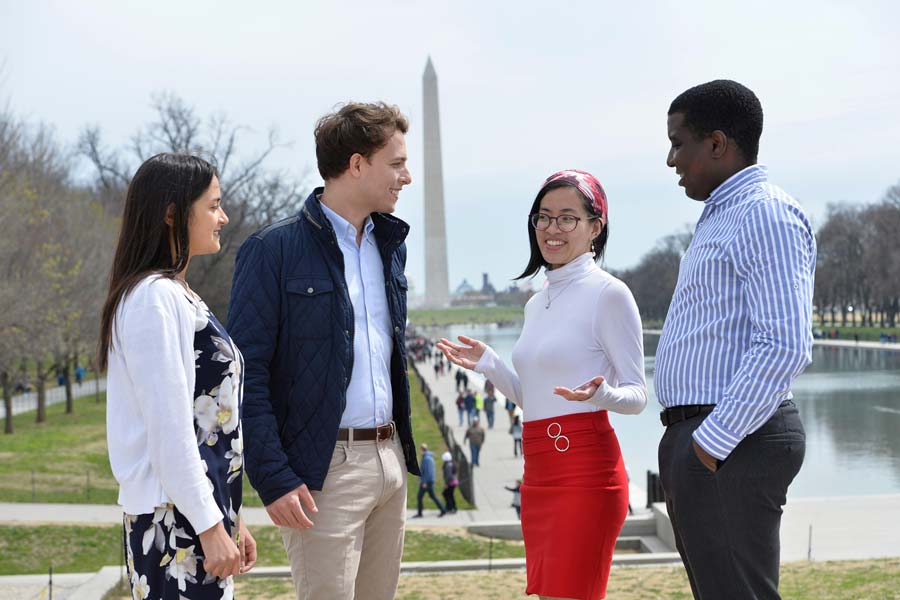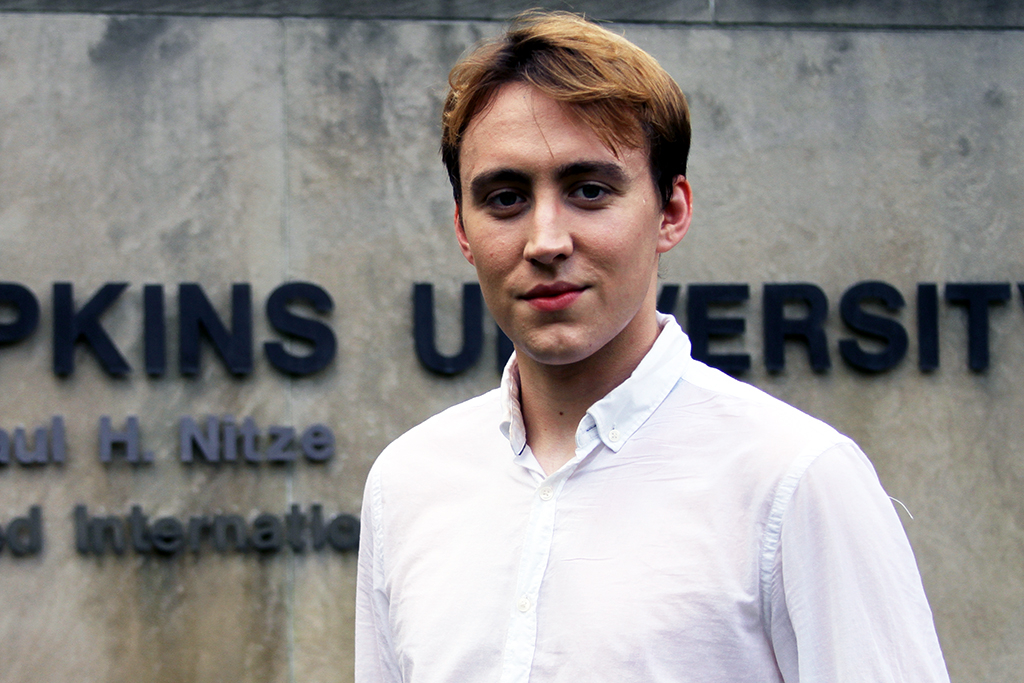Certificate in International Economics
Program Overview
The Certificate in International Economics will allow you to research the flow of capital, labor, investment and trade among nations, while obtaining the qualitative and quantitative skills necessary for economic forecasting.
Program Duration
You will have the option to complete the four-course certificate either full-time or part-time. Accelerated certificate students enroll full-time in the fall or spring and complete all four courses in one semester. Part-time certificate students can enroll in the fall, spring, or summer term and can complete the four courses in any time frame.
Requirements
- International Economics I
- International Economics II
- Two (2) electives offered within the International Economics & Finance curriculum



